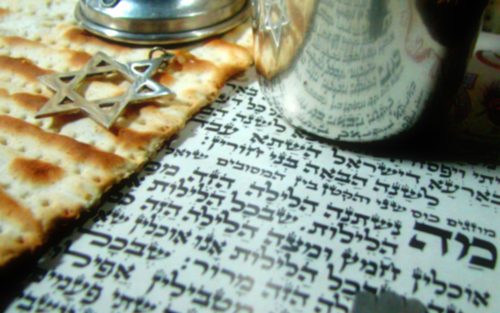Nash Holos: Passover
 Passover is a festival of freedom. It commemorates the exodus of Jews from Egypt over
Passover is a festival of freedom. It commemorates the exodus of Jews from Egypt over
3000 years ago. The timeless and universal message of this holiday is that slaves can go free, and the future can be better than the present.
Passover, or Pesach, as it is called in Hebrew, begins in the middle of the Hebrew month of Nisan, the first month on the Jewish liturgical calendar. It lasts for seven days in Israel, eight in the diaspora.
On the Gregorian calendar, Passover generally corresponds with late March or early April. This year in 2017, Passover begins April 11 and ends April 17.
Passover is known as the Feast of Unleavened Bread. In preparing for Pesach, Jews clean their homes and vehicles, removing every trace of leaven (or chametz, in Hebrew). This act symbolizes the haste with which the Jews left Egypt. They did not even have time to let the bread rise.
It is also a symbolic purification ritual— removing the puffiness of arrogance and pride, which separates us from one another, and our Creator.
The eating of matzo, or unleavened bread, is very important to Jews during this time. The scrupulous ritual avoidance of impurity, symbolized by leavening, helps Jews to observer the proper spirit of this festival.
The awakening of this higher faculty will lead to universal awakening and freedom from restriction, as represented by the Exodus.
Jews will continue to recount the Exodus story each year at Pesach until this destiny is finally realized, on behalf of humanity as a whole.
In the 20th century, Jews in the former Soviet Union considered living in the Soviet empire of evil the same as living in slavery in Egypt. In Soviet Ukraine, it was very difficult to keep kosher. Baking matzo was banned by the Soviet authorities. Jews had to establish secret matzo bakeries in private homes. Hand-built brick ovens, heated by wood, operated during the night. Every morning the ovens were thoroughly cleaned to remove any evidence of matzo baking from suspicious KGB eyes.
The distribution of matzo was also dangerous. Even in the last years of communism, during glasnost, matzo was still packed in cartons labelled as butter or other food products to disguise them during transport.
Many Jews were afraid of being caught by the KGB buying the forbidden matzo, so they baked their own at home, as in ancient times.
Pesach is one of the most important holidays for religious Jews, and even for less observant Jews. So, in Soviet Ukraine, Jews observed Passover as best they could—albeit very carefully. For example, the first and second Pesach seders, or dinners, were for families only. No strangers were ever invited for fear of inadvertently letting in a KGB informer.
After the collapse of communism, life improved for Jews in Ukraine. Today there is a bakery at the 29 Shchekavitska synagogue in Kyiv. The baking of matzo follows strict kosher protocols, and the bakery ships matzo all over the world.
It is possible to buy Kosher foods and wine in Kyiv. Jews of Lviv celebrate in the main synagogue and also at the ruins of the Turei synagogue, or the Golden Rose synagogue, in the old Jewish quarter of medieval times.
Today Jews in Ukraine are thankful to celebrate Passover freely, and they stand shoulder to shoulder with their non-Jewish Ukrainian friends and neighbours. United in their wish to live in a world where peace, prosperity and mutual respect prevail. Do not believe anyone who says otherwise.
This Passover may your cup overflow with happiness and prosperity.
Shalom!
Listen to the program here.
Ukrainian Jewish Heritage is brought to you by the Ukrainian Jewish Encounter (UJE), a privately funded multinational organization whose goal is to promote mutual understanding between Ukrainians and Jews. Transcripts and audio files of this and earlier broadcasts of Ukrainian Jewish Heritage are available at the UJE website and the Nash Holos website.



















